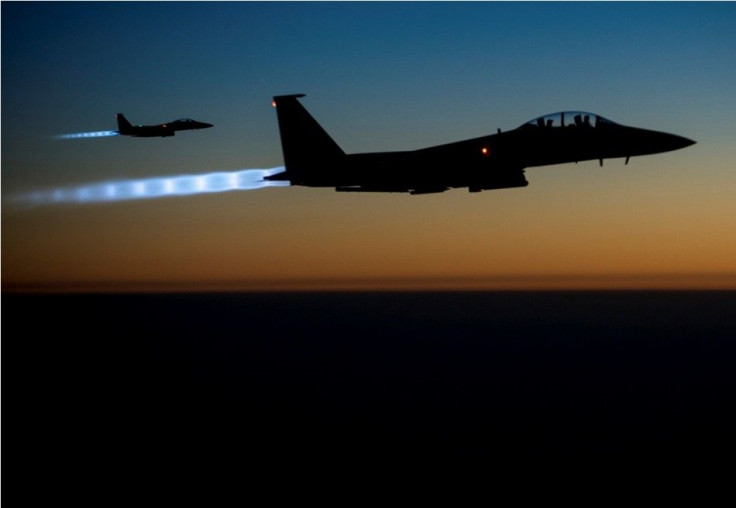Britain’s Defence Spending In Doldrums Despite Cameron’s Anti ISS Air Strikes And Tall Talk of Military Prowess

British Prime Minister David Cameron's recent warning to get into a "generational struggle" against the Islamic State (ISIS) under an assertive promise that Britain will use its full "military prowess" has rung a bell of alarm about its implications across the army, navy and air force.
Really speaking, under the Cameron regime, defence spending fell by 8 per cent as it spent time tackling a record budget deficit, reported The Telegraph. Defence secretary Michael Fallon's claimed at the recent Tory party conference that the UK defence budget is safe "for now." To show its concern for defence, on the eve of the Tory conference, the Ministry of Defence announced an award of £3.2 billion contracts to maintain the of Royal Navy's warships and submarines at the Clyde, Devonport and Portsmouth naval bases.
Lord West of Spithead, former Labour security minister, described the contracts as " naughty...politicking at its worst." He pointed out that barring these contracts, Britain's fleet would have been stuck in port as the money is barely enough to pay for running costs and nothing more, reported Guardian.
Unwieldy Projects
Cameron has promised to increase the military equipment budget in real terms by 1 per cent in the coming spending review. But there is concern that a big chunk of it will be eaten up by the new fleet of Trident submarines being made to carry nuclear weapons. Interestingly, that will not be useful for Cameron's current "generational struggle." Another chunk will be consumed by the navy's large aircraft carriers being assembled at Scotland. It is still unclear how many expensive American F35 jets Britain can afford for that project.
Major Deficiencies
Many such deficiencies in Britain's "military prowess" are coming to light. One more is the case of RAF having sharp and accurate Brimstone missiles. But its most modern aircraft, the Eurofighter Typhoon, cannot carry them. So the RAF continues to rely on Tornados which are three decades old. In fact, a squadron due to be scrapped next year, has been salvaged. Still the defence budget continues to face cuts.
Jonathan Shaw, former head of Britain's special forces regretted that in a perilous world, the U.K's Defence has become a painless place to cut easily and divert the spending for garnering votes areas like welfare, health and education. Professor Malcolm Chalmers of the Royal United Services Institute in a recent paper, "The Financial Context for the 2015 Strategic Defence and Security Review," feared that the U. K. defence budget will be further cut next year, and the actual spending will fall below the 2 per cent of GDP, required of NATO members.






